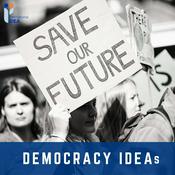The regulatory landscape surrounding Artificial Intelligence (AI) in Latin America is evolving rapidly, and with it, the role of AI in elections is also changing. The issues of AI-amplified disinformation and political polarization have become top priorities throughout the electoral cycle. However, addressing these challenges is placing an immense strain on governments and electoral institutions across the region. Compounding the issue is the fact that AI technologies are largely developed and controlled by private companies, creating barriers to accountability and transparency that undermine electoral integrity.
If governed in ways that uphold democratic values, AI can enhance efficiency and reliability in electoral management. It can also be leveraged to fight-fire-with-fire and counteract AI-based threats. The key question is: how can Latin American governments develop long-term strategic visions that harness the benefits of the technology while keeping its risks at bay?
Sit down with Juliane Müller, Associate Programme Officer at International IDEA's Digitalization and Democracy Programme, and Natalia Zuazo to examine the need for holistic AI-frameworks in the context of Latin America and the Caribbean.
Natalia is a digital policy expert, founder of the digital transformation consultancy SALTO, and a senior consultant for UNESCO's regional office in Montevideo. She is based in Argentina, and works regionally with the intersection of technology, human rights, and governance. Natalia collaborated with International IDEA as a regional expert during the AI for Electoral Actors workshop in Panama in May of 2025.
This episode is the third in a series for the AI for Electoral Actors project that aims to raise AI literacy among EMBs in Africa, Asia and the Pacific, Latin America and the Caribbean, and the Balkans and Eastern Europe.
Listen to the first episode here and the second episode here.
Background reading:
AI for Electoral Actors



